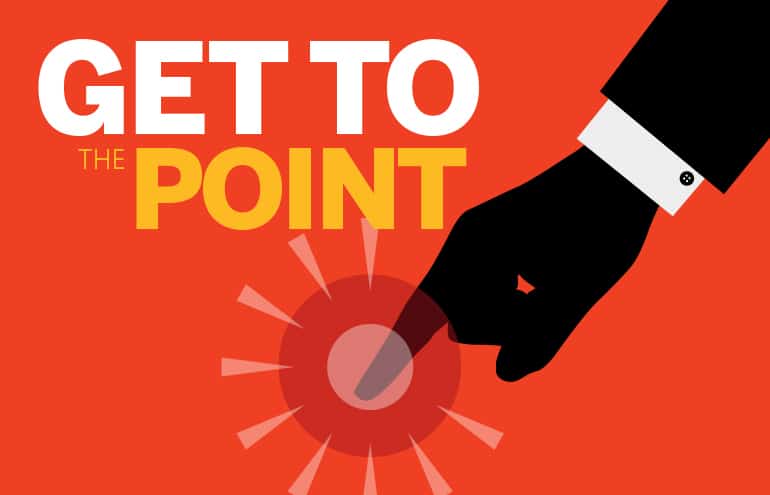More effective communication with clients starts with understanding that you know too much.

Law school teaches students to “think like a lawyer.” For better or worse, it also teaches us to write and speak like a lawyer — or at least some version of writing and speaking like a lawyer. The result? The way some lawyers communicate is stuck in the past.
What We Learned in Law School
One of the first sentences we read in Con Law was:
At the December term 1801, William Marbury, Dennis Ramsay, Robert Townsend Hooe, and William Harper, by their counsel severally moved the court for a rule to James Madison, secretary of state of the United States, to show cause why a mandamus should not issue commanding him to cause to be delivered to them respectively their several commissions as justices of the peace in the district of Columbia. – Marbury v. Madison 1803
Communication got clearer with the passage of time, but still not great:
In fashioning and effectuating the decrees, the courts will be guided by equitable principles — characterized by a practical flexibility in shaping remedies and a facility for adjusting and reconciling public and private needs. – Brown v. Board of Education 1954
Keep in mind that 1954 was the same year Elvis Presley recorded his first single, “That’s All Right.” Lawyers were still writing as if it was 1854.
The Curse of Knowledge: You Know Too Much
Part of the problem is the curse of knowledge. When someone is expert on a subject, they tend to forget to explain the basics.
It’s easy to think everyone understands certain foundational information. I recently got a question about the deductibility of an expense and had to backtrack to explain the difference between a cash-basis and an accrual-basis taxpayer.
Even when lawyers write in something close to plain language, their writing is often incomprehensible to those outside the profession. It’s the curse of knowledge.
When you know a lot about a subject, it’s hard to remember what it’s like to not know so much. Your erudition causes you to think abstractly. You may think you are explaining a concept, but you are doing so using technical terms, abbreviations, or references your audience doesn’t understand. The problem is that many clients are embarrassed to stop you. They may nod or even say they understand when they don’t.
Clients may have concerns about issues that don’t seem important or determinative. The worst-case scenario would be if they sought other counsel because you were talking about high-level stuff but brushing off their prosaic concerns.
One theory about Donald Trump’s political success is that he uses a limited vocabulary of simple words. Think about using language you would use outside the professional setting. Talk about “fixing” a situation rather than “resolving” a conflict. Appealing to the listener’s emotions may sell an idea like the value of compromise more effectively than a review of the facts and law. Be specific.
Your clients hired you for your ability to achieve a good result. If you begin at the starting line together, you will be most effective in bringing them to the finish line.

More Writing Tips
Find more good ideas for improving your legal writing and communications skills in “Get to the Point” by Teddy Snyder.
Subscribe to Attorney at Work
Get really good ideas every day for your law practice: Subscribe to the Daily Dispatch (it’s free).
















